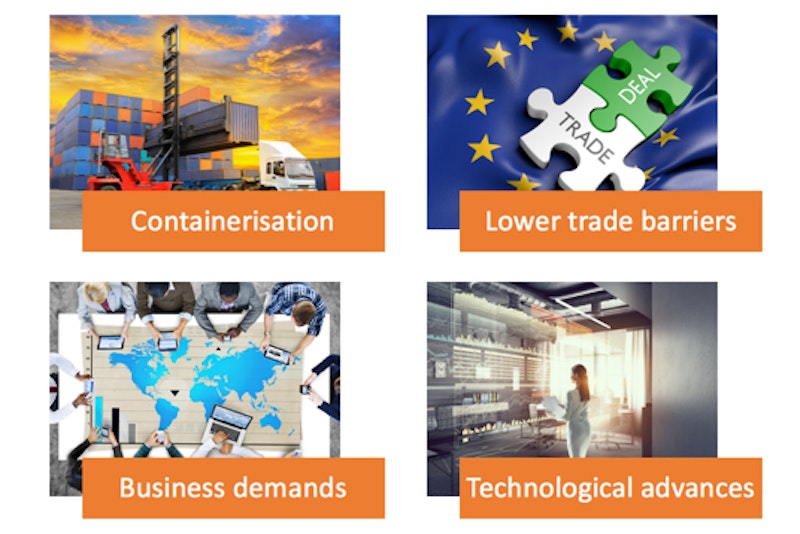Topic Videos
What is Globalisation?
- Level:
- AS, A-Level, IB
- Board:
- AQA, Edexcel, OCR, IB, Eduqas, WJEC
Last updated 17 Mar 2023
This year video considers the nature of globalisation as a process of deeper integration and interdependence between countries.
Globalisation is a process by which economies and cultures have been drawn deeper together and have become more inter-connected through global networks of trade, capital flows, and spread of technology and global media.
What is the key benefit of globalisation?
Globalisation allows businesses and countries to specialise in producing goods and services where they have a comparative advantage. Specialisation and trade enables a gain in economic welfare, for example through lower prices for consumers which then increases their real incomes.

Globalisation - some key terms
Foreign direct investment (FDI): An investment made by a firm or individual in one country into business interests located in another country
Globalisation: Globalisation is a process of deeper economic integration between countries and regions of the world.
Transnational company: Transnational businesses (TNCs) base their manufacturing, assembly, research and retail operations in a number of countries.
Open economy: An economy with low tariff and non-tariff barriers which is deeply integrated into the regional and global economy and where the value of trade measured as a share of GDP is rising
Closed economy: An economy operating without imports and exports – i.e. closed to global trade and also with barriers to inflows and outflows of foreign investment
What are some of the main characteristics of globalisation?
- Increased interconnectedness: Globalization has led to increased interconnectedness between countries, both economically and culturally. For example, the growth of global supply chains means that a product made in one country may include components from several other countries. A study by the McKinsey Global Institute found that in 2017, 80% of global trade in goods was part of a global value chain.
- Rapid technological advancements: Globalization has been facilitated by rapid technological advancements, particularly in the area of communication and transportation. For example, the rise of the internet and social media has made it easier for people to connect with others around the world. According to a report by the International Telecommunication Union, by the end of 2020, there were 4.7 billion active internet users around the world.
- Greater cultural exchange: Globalization has led to greater cultural exchange between countries, as people are exposed to different ideas, values, and traditions from around the world. For example, the popularity of Korean pop music (K-pop) has spread to many countries around the world, with fans in the United States, Europe, and Latin America.
- Growing environmental awareness: Globalization has led to growing environmental awareness, as people become more aware of the impact of economic activity on the environment. For example, the 2015 Paris Agreement on climate change was signed by 196 countries, demonstrating a global commitment to reducing greenhouse gas emissions and mitigating the effects of climate change.
Regenerate response
You might also like
Competitiveness
Study Notes
Final preparations for Unit 4 macro
17th June 2015

Global Competitiveness Report 2015-16
20th September 2015

A New Phase of Globalization
6th March 2016

Options for Trade Deals if the UK Leaves the EU
24th April 2016

China's State-Owned Car Making Giants
18th September 2016

Deloitte "Back to School" webinar
7th September 2017
